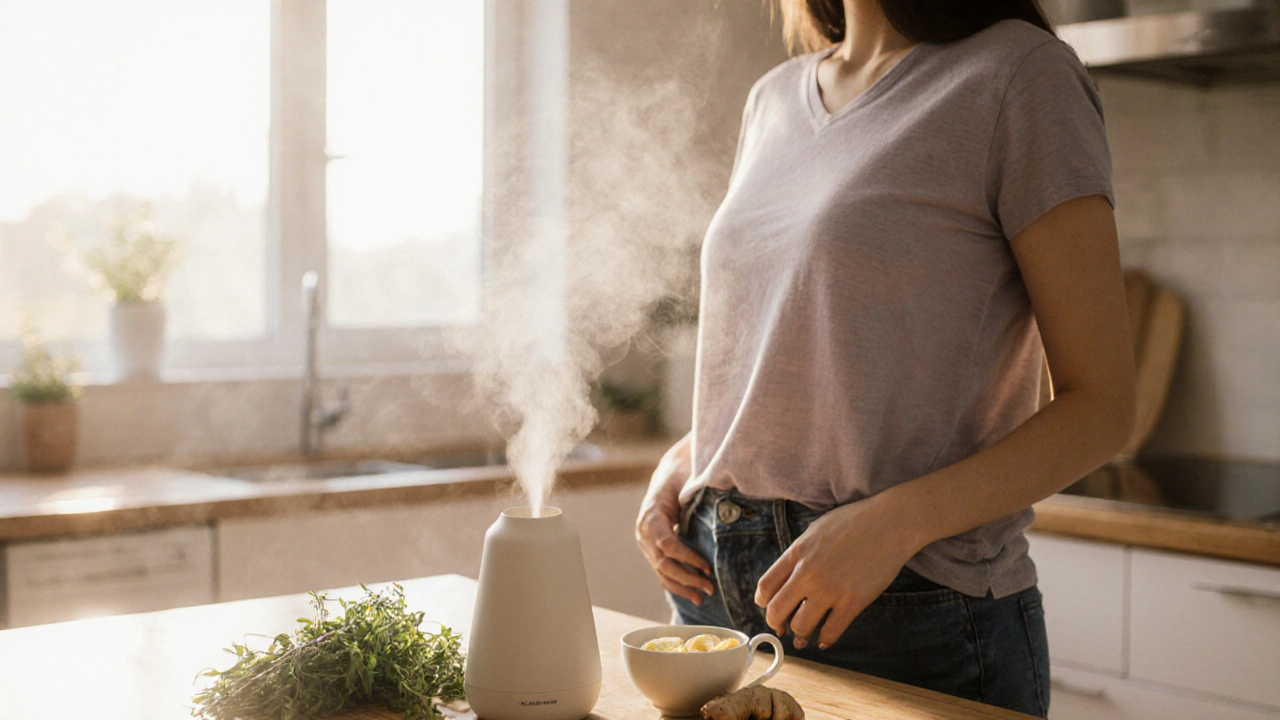Aromatherapy: What It Is and Why It Matters
Ever heard someone say a scent can lift their mood or help them sleep? That’s aromatherapy in action. It’s simply the practice of using plant‑derived oils to affect how we feel, think, or even heal. You don’t need a degree in chemistry – just a few drops, a diffuser or a rollerball, and a willingness to try. On this page we’ll break down the most common oils, explain what they can do, and give you straight‑forward safety tips so you can enjoy aromatherapy without guesswork.
Top Essential Oils for Everyday Use
Not all oils are created equal, but a handful show up again and again in research and home kitchens. Ylang Ylang is famous for calming nerves and balancing hormones; a few drops on your pillow can make falling asleep feel easier. Pennyroyal is a strong anti‑inflammatory herb that some people use for digestion and menstrual comfort, but it’s potent, so low doses are key. Lavender is the go‑to for stress relief – a quick inhale during a break can cut tension in minutes. Peppermint brings a cooling sensation that can ease headaches or help you stay alert while you study. Finally, Eucalyptus clears the airways and is handy during colds. When you pick an oil, think about the feeling you want and start with a small amount; you can always add more later.
Safety and Best Practices
Even natural oils can cause irritation if you’re not careful. Always dilute the oil in a carrier like coconut or almond oil before applying it to skin – a typical blend is 2‑3 drops of essential oil per teaspoon of carrier. If you’re pregnant, have epilepsy, or are on medication, check with a healthcare professional before using strong oils like pennyroyal or rosemary. Test a tiny spot on your forearm first; if you see redness, wash it off and use less. Keep oils out of reach of kids and pets, and store them in dark glass bottles to protect the compounds from light. Finally, use a clean diffuser and change the water daily to avoid mold growth.
Now that you have the basics, you can explore more detailed guides on our site. Want to know how Ylang Ylang works as a supplement? Check out our Ylang Ylang oil article. Curious about pennyroyal’s role in holistic health? Read the Pennyroyal supplement post. Each article dives deeper into dosage, scientific backing, and real‑world tips. Aromatherapy is all about trial, observation, and finding what suits you best.
Ready to give aromatherapy a try? Start with a single oil you’re drawn to, set up a diffuser in your bedroom, and notice how the scent changes your mood over a few nights. Track what you like, adjust the blend, and you’ll soon have a personalized aroma toolkit that supports stress relief, better sleep, and overall well‑being. Have questions? Our community loves to share experiences, so feel free to leave a comment or reach out through our contact page. Happy smelling!
Aromatherapy for Diverticulitis: Can Essential Oils Ease Your Symptoms?
Explore whether aromatherapy can ease diverticulitis symptoms, learn the best essential oils, safe usage tips, and when to seek medical care.
Read more
